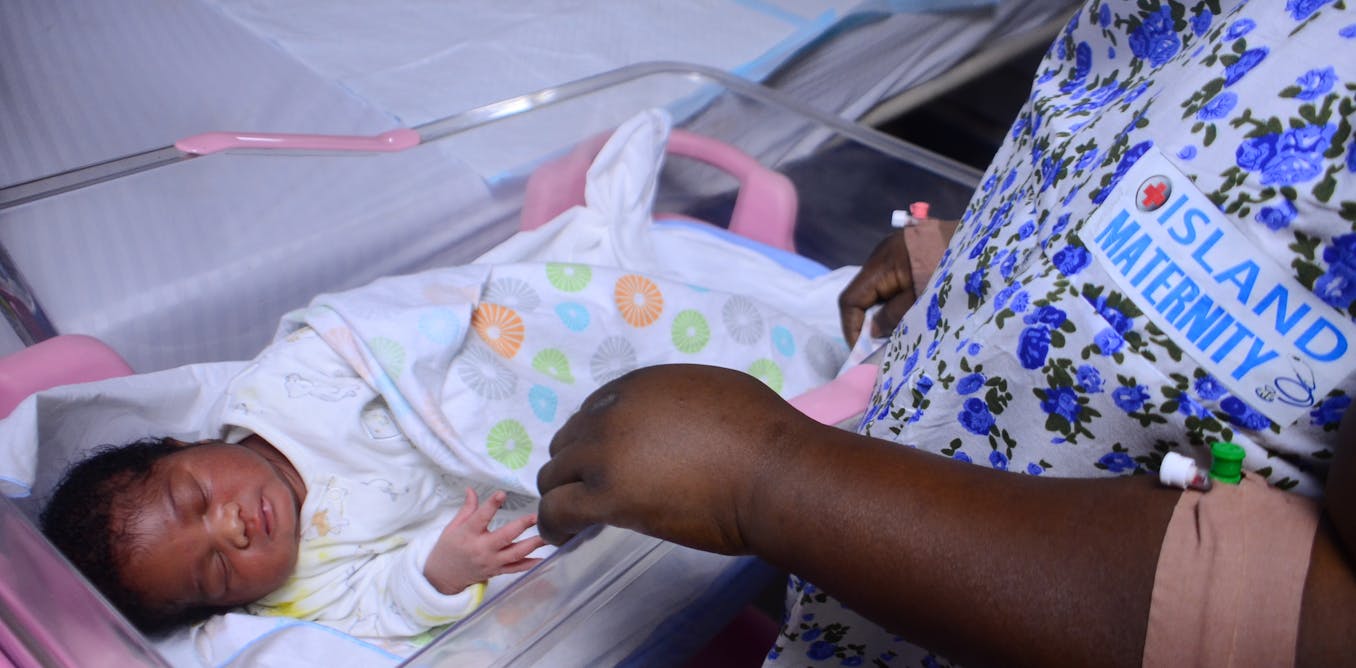In our latest study we found that samples taken from mothers and newborn babies younger than one week in Nigeria already had colistin-resistant bacteria present in their bodies. But neither the babies nor their mothers had been treated with colistin.
Colistin is one of the last remaining antibiotics that is still effective in killing bacteria and fighting infections such as pneumonia. It is deemed critically important for human medicine by the World Health Organization.
We surmise that mothers may have picked up these colistin resistant bacteria from the environment. We cannot speculate on the specific mechanism. The babies, meanwhile, could have picked up the bacteria from the hospital, the community, or from their mothers. It’s not yet known if these colistin-resistant bacteria stay in the mothers or babies – but if they do this may increase their chances of acquiring future drug-resistant infections.
We’ve known about the dangers of overusing antibiotics for decades now, and it’s become obvious that this is yet another case where we won’t do near enough to combat a problem until it’s already much too late and practically disastrous
We’ve had a solution for nearly 100 years, phage therapy.
Phages are pretty cool, but bacteria do develop phage resistance as well. Phages also can evolve to evade those resistances, in a co-evolutionary battle, but also Phages can still be seen as antigens to our own body.
A recent case-study: https://www.upmc.com/media/news/021424-phage-therapy
To avoid reading the whole article: Antibiotics no-longer worked for a patient in 2020 that developed an infection after needing immunosuppression for treatment of an autoimmune condition, so they tried phage therapy.
quote from the phage treatment section:
Within 24 hours of receiving phage therapy, the patient’s blood infection had resolved and she could go home, where she continued the phage and antibiotic combination. She developed a few short-lived breakthrough infections, which indicated the bacteria was getting around the therapy, so the researchers found an additional phage that targeted her bacteria.
With the addition of the new phage, the patient was blood infection-free for four months and able to travel out of state for a for a family beach vacation.
However, just over six months after starting phage therapy, the blood infection returned, and the phage-antibiotic combination was thought to be no longer effective. The patient died in 2022.
In order to learn why the infections recurred despite the combination being previously effective, laboratory testing revealed that the patient’s immune system had likely activated in a way that blocked the phages from attacking the bacteria.
I’m not disagreeing with the benefits of Phage Therapy, just that it isn’t likely a magic solution all on it’s own, and can still suffer similar resistance issues as antibiotics have. I’m a fan of multipronged attack vectors, to reduce the chance of developing progressive resistances (ie. wipe out the whole colony), and the more tools we have for that, the better.
That just goes to show how complex the immune system is. Even though we learn more about it all the time, I get the feeling that we’re only scratching the surface.
In part, yes. Mostly it goes to show that bacteria are highly adaptable, and highly dangerous. Between the quick generation rate, and their ability to pick up genes as adult individuals, they can evolve faster than we can test new treatments against them. It’s only thanks to a complex immune system, that we get to live at all.
However, in a study we published in 2023, we found that, while European countries have banned the use of colistin in farming, paradoxically they still actively export livestock feeds that contain colistin to low- and middle-income countries such as Nigeria for agriculture use.
When people complain about people fleeing their countries in the global south, they often forget or omit that the global north plays a large part in the state of the countries being fled from. A majority seems to believe that they can continue living their lives, built upon the extraction of wealth from others, with no repercussions and constantly amazed when they are proven wrong.
People do not vote for improvements in other countries. In a globally connected world, people stay myopic in time and space, only caring enough to take action related to things that happen to them, those close to them, or those that are like them.






